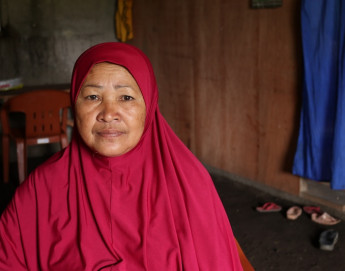
Philippines: How Jubaida revived her small business

Jubaida Alon, 49, is proud of her sari-sari store. After years of saving and planning, she finally opened a store last year that offers assorted goods such as coffee, snacks, hygiene and household items.
Like any entrepreneur, Jubaida was aware of the risks that came with starting a small business. But in her village of Tuayan Mother in Datu Hoffer, Maguindanao, running a business can be even trickier. Sporadic clashes due to a long-running conflict has deeply affected her community.
Jubaida's family was safe from the bout of fighting in March, but her business slowed down. The hostilities forced other villagers to flee while those who lived nearby feared another clash.
The COVID-19 pandemic was another burden for them: Jubaida had to cut prices, so people can afford her products or buy more since everyone in the community was affected by the conflict and the pandemic.
While business was slow, Jubaida worked as a farm laborer to earn extra. A single mother, she supports two of her children who are still in school.
Armed conflicts can have devastating effects on people's livelihoods. An insecure environment causes small businesses like Jubaida's to lose income quickly. Her family was among the 1,032 most vulnerable families affected by conflict who received an unconditional cash grant from ICRC in July 2020.

Jubaida used part of the PHP 5,000 cash grant to boost her business by offering new items at her store. She now sells banana cue and electronic cellphone load, and both are a hit with her customers.
For Jubaida, the future is always uncertain. She makes sure to add to her savings in case of an emergency, and she also sets aside some of her earnings to grow her sari-sari store.



